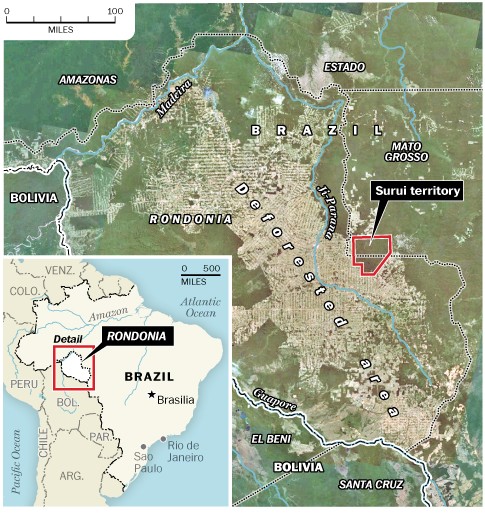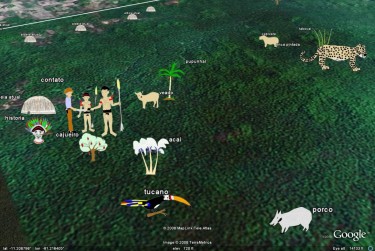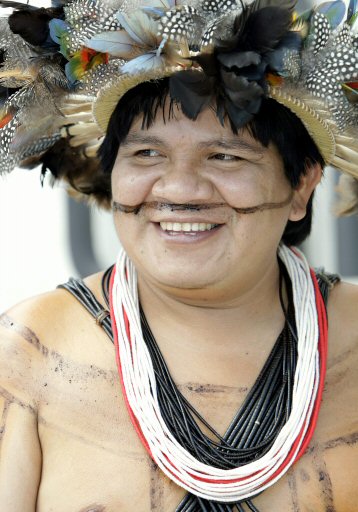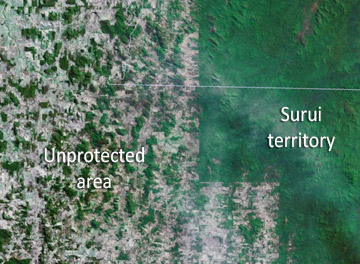Case Study: Paiter-Surui tribe in Rondônia
The indigenous Paiter-Surui tribe of Rondônia, Brazil remained largely disconnected from the rest of Brazil until the 1960s, when contact with the outside world quickly led to disease that decimated Surui numbers and impoverished the tribe. Chief Almir Narayamoga Surui grew up during that time, but attended university and returned to herald a new chapter in his tribe’s history through embracing modern technology as a tool to combat deforestation of his ancestral lands.
In 2009, Forest Trends, a Washington, DC-based conservation group, commissioned a legal opinion from Baker & McKenzie, one of the world’s largest law firms that concluded that according to the Brazilian constitution and legislation, the indigenous Paiter-Surui tribe in Rondônia owned the carbon-trading rights to their land. The opinion was monumental to the Paiter-Surui as they struggled to save their land from loggers. Chief Almir Narayamoga Surui has since focused on technology as a weapon to combat deforestation.
Chief Almir leads his tribe in using a variety of modern ICT tools, including GPS devices to map territory and Android phones to monitor illegal logging and then upload videos to the Internet and alert relevant authorities. Since 1997, Chief Almir founded a relationship with Google Earth Outreach to map and exhibit the tribe’s forested lands. A project with Google Earth Outreach resulted in an ethno-map of Surui lands, showing old battlegrounds, tree groves, animal-breeding areas and ancestral burial grounds.

The Surui territory is about the size of Rhode Island. Source: Google Earth | Gene Thorp/The Washington Post March 27, 2013, accessed at Washington Post
Cataloging their land using modern technology has enabled the Paiter-Surui to engage in carbon payment schemes that provide the tribe with financial resources in exchange for conserved forests that serve as carbon sinks. Through using smartphones to collect biomass data and estimate carbon storage on their forest plots, in 2013 the Paiter-Surui sold 120,000 tons of carbon offsets to the Brazilian cosmetics company Natura, marking the first time indigenous people had sold REDD+ credits.
The Surui tribe maintains its own website, http://www.paiter.org.

Surui Cultural Map, Created in Partnership with Google: Source

Indigenous chief Almir Naramayoga Surui of the Paiter Surui tribe Photo Source

Satellite maps showing deforested lands surrounding lush Surui territory underscores the importance of empowering the Surui tribe against the pressures of illegal logging. Image